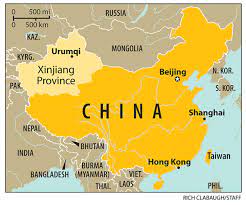Unraveling Trade Compliance Issues Involving China’s Human Rights Abuses in Xinjiang

Companies with supply chains stretching into China and Xinjiang are facing a mountain of compliance challenges. Over the summer, the Biden Administration has taken numerous aggressive steps to pressure China to address human rights violations in the Chinese province of Xinjiang focusing on the repression of more than a million Uyghurs in that region.
Those companies that maintain supply chains anywhere in Xinjiang have to take affirmative steps to identify potential issues, prioritize tasks based on risk, and implement solutions as quickly as possible. A blind-eye approach to this issue will only complicate issues, expand a potential voluntary disclosure, and bring difficult compliance questions to resolve with enforcement agencies.
The U.S., the EU and the UK have adopted import bans on cotton, tomatoes some solar products that originate in Xinjiang, as well as sanctions on numerous Chinese officials..
If your company operates in the Xinjiang province, it is important to establish an internal task force to coordinate information sharing and strategy among compliance, procurement, vendor onboarding and legal.
Here is a summary of some of the most significant actions that have occurred over the summer.

On June 24, 2021, the White House issued broad statement of coordinated actions after the G-7 summit. The statement condemned China’s “forced labor practices” that “expose American consumers to unethical practices.” The White House explained that these practices “also leave American businesses and workers to compete on an uneven playing field by allowing firms to gain advantage over their competitors by exploiting workers and artificially suppressing wages.” To rid U.S. companies of forced labor in their supply chains, the White House announced that:
U.S. Customs and Border Protection Issues Withhold Release Order (WRO) on silica-based products made by Hoshine Silicon Industry Co., Ltd., a company located in Xinjiang, and its subsidiaries because Hoshine used forced labor to manufacture silica-based products. CBP’s forced labor investigations have produced six Withhold Release Orders in Fiscal Year 2021.

Department of Commerce Bureau of Industry and Security Updates its Entity List to add five PRC entities: Hoshine Silicon Industry (Shanshan); Xinjiang Daqo New Energy; Xinjiang East Hope Nonferrous Metals; Xinjiang GCL New Energy Material Technology, and XPCC, for participating in the practice of, accepting, or utilizing forced labor in Xinjiang and contributing to human rights abuses against Uyghurs and other minority groups in Xinjiang. This action follows the 48 PRC entities previously added to the Entity List for their connections to human rights abuses in Xinjiang. , restricts the export, reexport, or in-country transfer of commodities, software, and technology subject to the Export Administration Regulations where such entities are a party to the transactions (e.g., end-user, purchaser, intermediate or ultimate consignee).
Department of Labor Updates the “List of Goods Produced by Child Labor or Forced Labor”: The Department of Labor has published a Federal Register Notice updating its “List of Goods Produced by Child Labor or Forced Labor,” to include polysilicon produced with forced labor in the PRC.
On July 12, 2021, BIS added 34 more entities to the Entity List based on a finding that they were implicated in human rights violations in Xinjiang.
Congress is also considering legislation related to the Xinjiang situation. The Uyghur Forced Labor Prevention Act (S.65) was approved by the Senate, and a House companion measure is being pushed in the House (H.R. 1155). The legislation would require securities issuers to file annual or quarterly reports with the SEC disclosing instances in which the issuer engaged in certain activities in Xinjiang.















